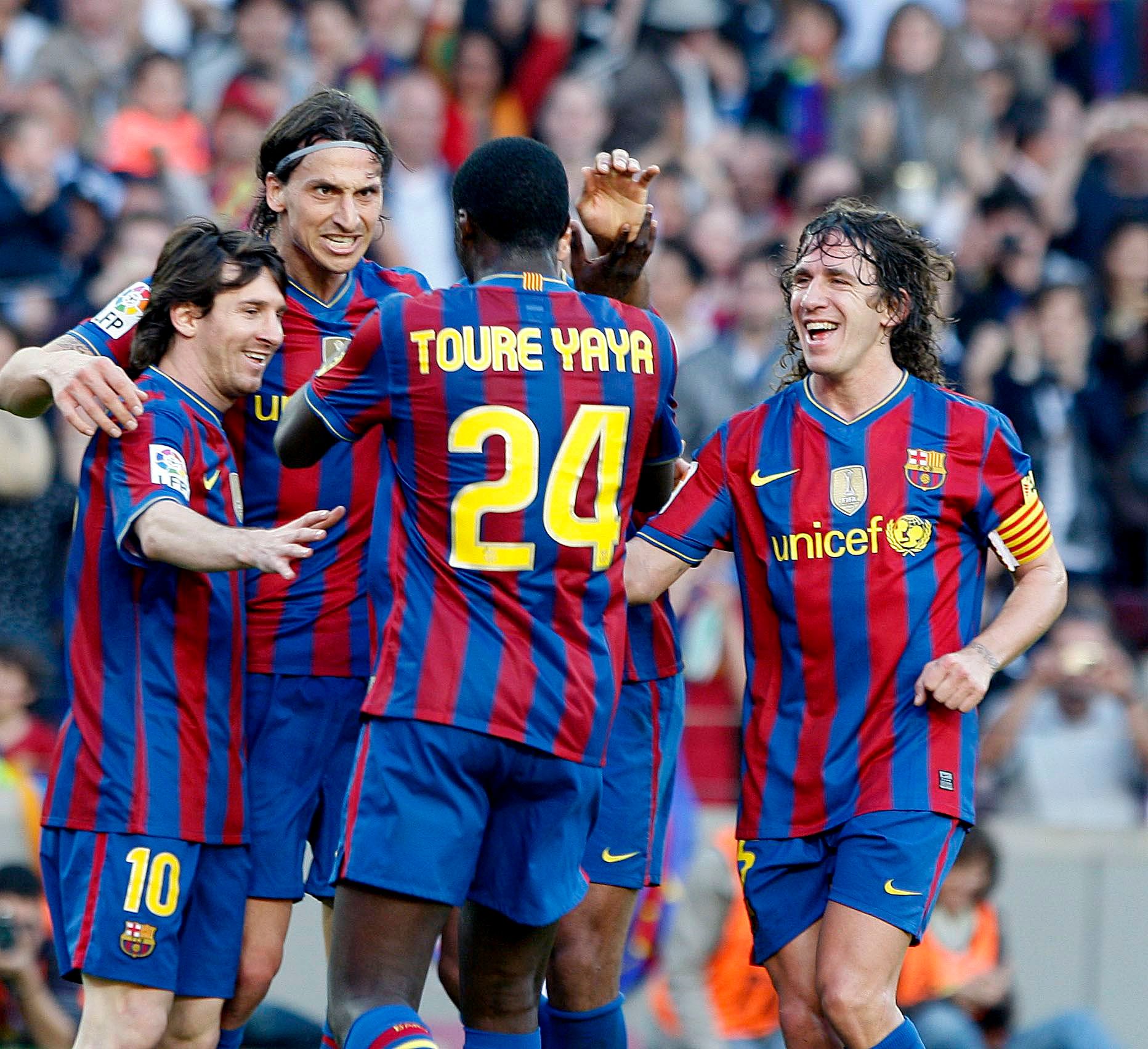
On June 17th 2008, FC Barcelona made one of the biggest decisions in club history. Following a 2007/08 campaign in which Los Blaugrana didn’t win any trophies and in which they finished a whopping 18 points behind rivals Real Madrid in LALIGA EA SPORTS, change was needed and the directors at the Camp Nou made a bold decision: they promoted Pep Guardiola from B-team coach to first-team coach.
At the time, it was viewed by many as a gamble, a major roll of the dice, but those closest to the young tactician felt confident. They’d seen Guardiola’s work with the B team, where he had just achieved a promotion, and knew what he was like from his 386 matches as a player for the club.
Players like Xavi and Andrés Iniesta were excited to work with a figure they’d grown up idolising and who they completely revered. As Xavi famously put it, if Guardiola had wanted to become a musician then he’d have studied obsessively until he achieved that dream. Fortunately for FC Barcelona, Guardiola’s passion was football and he led the club on an incredible journey.
Following a rocky start, as the new-look team lost 1-0 at CD Numancia and drew 1-1 at home to Real Racing Club in the first two matchdays, Guardiola’s side started to click as the players grew increasingly comfortable in his fluid 4-3-3 system, and they became almost unstoppable.
Playing some of the most scintillating football ever seen, FC Barcelona went on to win the first treble in club history in the 2008/09 campaign, winning LALIGA EA SPORTS, the Copa del Rey and the Champions League. At the time, only four other clubs in Europe had ever won a treble of domestic league, domestic cup and European Cup, and none of them had done so playing such attractive football as this Barça side. Even more impressive was that FC Barcelona followed that up by winning a sextuple in the 2009 calendar year, by adding the UEFA Super Cup, Spanish Super Cup and Club World Cup.

At the time of that treble, Sergi Roberto, the current FC Barcelona captain, was a 17-year-old in the FC Barcelona youth system and he watched on in awe. “I think it was the best football ever played in the whole world, in all of history,” he recalled, speaking to LALIGA. “What’s more, it was achieved with homegrown players. I think it was very special for all, to play this kind of football, to win so many titles and to do so with a squad that was made up of so many homegrown players.”
Sergi Roberto is right to highlight the fact that La Masia contributed so many players to Guardiola’s squad. Looking at the starting XI of the 2008/09 Champions League final, which was won 2-0 against Manchester United in Rome, there were seven La Masia academy graduates in the line-up: Víctor Valdés, Carles Puyol, Gerard Piqué, Sergio Busquets, Xavi, Andrés Iniesta and Lionel Messi. The other four players were Sylvinho, Dani Alves, Yaya Touré and Thierry Henry, who each complemented the homegrown talents in their own way.
When FC Barcelona returned to the Champions League final in the 2010/11 season, defeating Manchester United again, this time by a 3-1 scoreline in London, there were also seven La Masia players in the starting XI. Six of them were the same, while Pedro started instead of Puyol. And, that largely homegrown team put on a footballing show at Wembley Stadium, with goals from Pedro, David Villa and star man Messi, deployed in the ‘false nine’ position Guardiola had created to get the best out of the Argentine. Barça were so good that Manchester United manager Alex Ferguson could only applaud. “They are the best team we have ever played,” he stated afterwards.
By that time, Sergi Roberto had made his debut with that squad of superstars and was able to experience the success up close. He has nothing but praise for the coach and that group of players, stating: “I was lucky enough to make my debut with Pep Guardiola and then to experience many moments with those players. I would point to the teammates I spent the longest with, from Busquets, Jordi Alba and Messi to Puyol, Piqué, Iniesta, Xavi and everyone I was able to play with for such a long time. Truly, those were unforgettable years.”
Just like Sergi Roberto, all the FC Barcelona fans who were able to enjoy that golden generation will never forget that super team, nor the many trophies that Guardiola’s side racked up between the coach’s arrival in 2008 and departure in 2012. In total, the Catalan coach won 14 of the 19 competitions he entered with Los Blaugrana, namely: LALIGA EA SPORTS (2008/09, 2009/10, 2010/11), Copa del Rey (2008/09, 2011/12), Champions League (2008/09, 2010/11), UEFA Super Cup (2009, 2011), Spanish Super Cup (2009, 2010, 2011) and Club World Cup (2009, 2011).
It could even be argued that Guardiola’s impact on his squad and on the next generation, which included players such as Sergi Roberto, was so great that he helped pave the way for the continued success that followed. When Guardiola’s assistant, the late Tito Villanova, stepped up to the head coach role in 2012/13, the team continued to function like clockwork and won that year’s league title with a record 100 points. And, the legacy of trusting in youth was seen clearly in one game at Levante UD that campaign, when all 11 Barça players were La Masia alumni.
It truly was a golden generation, one that is still remembered so fondly in Catalonia over a decade later and one that will never be forgotten.

Be the first to comment